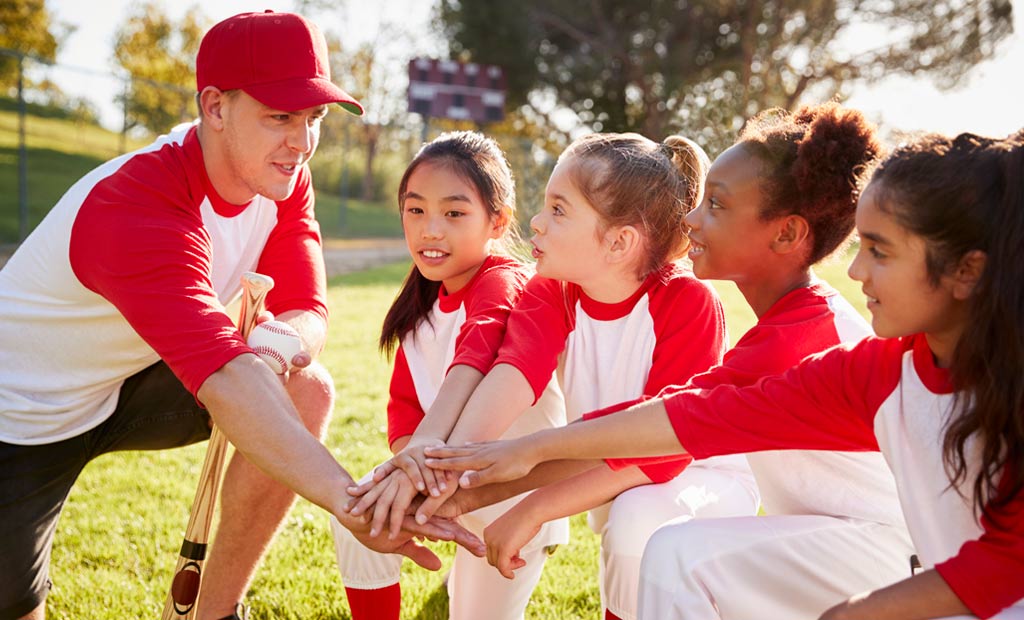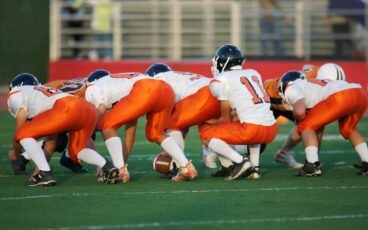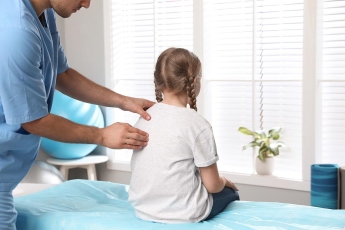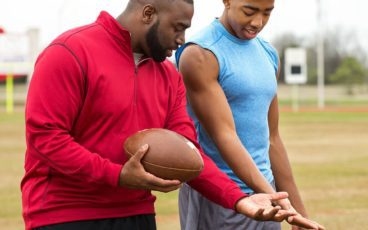
With April being National Youth Sports Safety Month, there is no better time to bring awareness to youth sports injuries. Being active in sports can provide a holistic approach to development, benefiting children and teens physically, mentally, socially, and emotionally. To keep your loved ones safe, parents should take safety precautions to avoid injuries or burnout this season.
Sports Safety Tips for Young Athletes
Watch Out for Overuse Injuries: With the rise in youth sports, children, teens and adolescents are vulnerable to overuse injuries in their joints and tendons from repetitive use. Young athletes who play one sport several months of the year are more likely to succumb to injury. Playing a variety of different sports allows different muscle groups to be used. Taking time to rest in the offseason will help recovery of growing bones and development of muscles or tendons.
Youth sports bring individuals, families, and communities together, with benefits far beyond the field of play. Parents, coaches, and sports organizations play a crucial role in prioritizing safety and injury prevention strategies.
IBJI helps young athletes prevent and recover from sports injuries, treating a variety of orthopedic conditions, from breaks and sprains to growth-plate injuries. Our experts in pediatric sports medicine are committed to improving the health of your young athletes through proper diagnosis, treatment and education.
Get a Sports Physical: Young athletes should undergo a physical before participating in sports. Get clearance from a physician to ensure that everything looks good from an athletic and medical perspective. If any health problem is detected, the doctor will make recommendations for treatment or suggest modifications, like using protective equipment, or prescribe medications for the health problem to aid recovery. Most schools and athletic programs require a sports physical before play. IBJI offers sports physicals across Chicagoland to determine your young athlete’s ability to compete safely.
Baseline Concussion Screening: IBJI provides concussion baseline options for athletes. The most straightforward and convenient is the ImPACT computerized baseline. The ImPACT baseline also assesses for pre-existing symptoms which are commonly seen in head injuries or concussions, which can be helpful during an injury evaluation. You can now take an ImPACT Baseline Test using IBJI’s Access app, Download our app from the Apple App Store or Google Play to schedule a test at home.
Eat a Diet Rich in Nutrients: Proper nutrition is essential for young athletes to fuel their performance, support recovery, maintain immune function, promote bone health, enhance mental focus, and establish lifelong healthy eating habits. Eating a balanced diet will help young athletes train, perform, and recover after exercise. Planning nutrient-rich meals during weekly practice and competition days offers health and performance benefits over unhealthy fast food options.
Stay Hydrated: Student athletes should have access to water during workouts, practice and games for proper muscle function and to avoid cramps. Muscles require hydration to perform effectively. Drink water throughout the day, and increase the amount two to three hours before competition. For longer or more intense activities, or in hot and humid conditions, sports drinks containing electrolytes and carbohydrates can be beneficial.
Fitness Training: Never underestimate the importance of fitness training, particularly a good warm-up. Always plan extra time to stretch your entire body, get your blood flowing, and warm up cold muscles. Your warm-up should include both dynamic and static stretches. Warming up is crucial for injury prevention, improved performance, increased range of motion, mental preparation, and gradual transition to play. It should be an integral part of any sports or physical activity routine to optimize athletic performance and reduce the risk of injuries.
Wear Appropriate Gear: Dress properly for your sport. Required gear, like helmets, cleats, or pads, should be fitted properly and in good condition. Investing in good athletic gear is essential for safety, performance, durability, comfort, injury prevention, and confidence, contributing to a positive and successful sports experience for athletes of all levels.
Rest & Recover: Adequate rest and recovery from exercise are crucial for muscle growth and development. Watch out for signs of fatigue or overtraining and pay attention to how your child or teen feels. Young athletes should incorporate rest days into their schedules and prioritize quality sleep. Proper rest is an integral part of a comprehensive training program aimed at maximizing performance, minimizing injuries, and promoting long-term athletic success.
About the Author
Edward Logue, MD is an orthopedic surgeon with fellowship training in knee and sports medicine. He specializes in treating endurance athletes and uses conservative treatments such as injections and physical therapy whenever possible.




